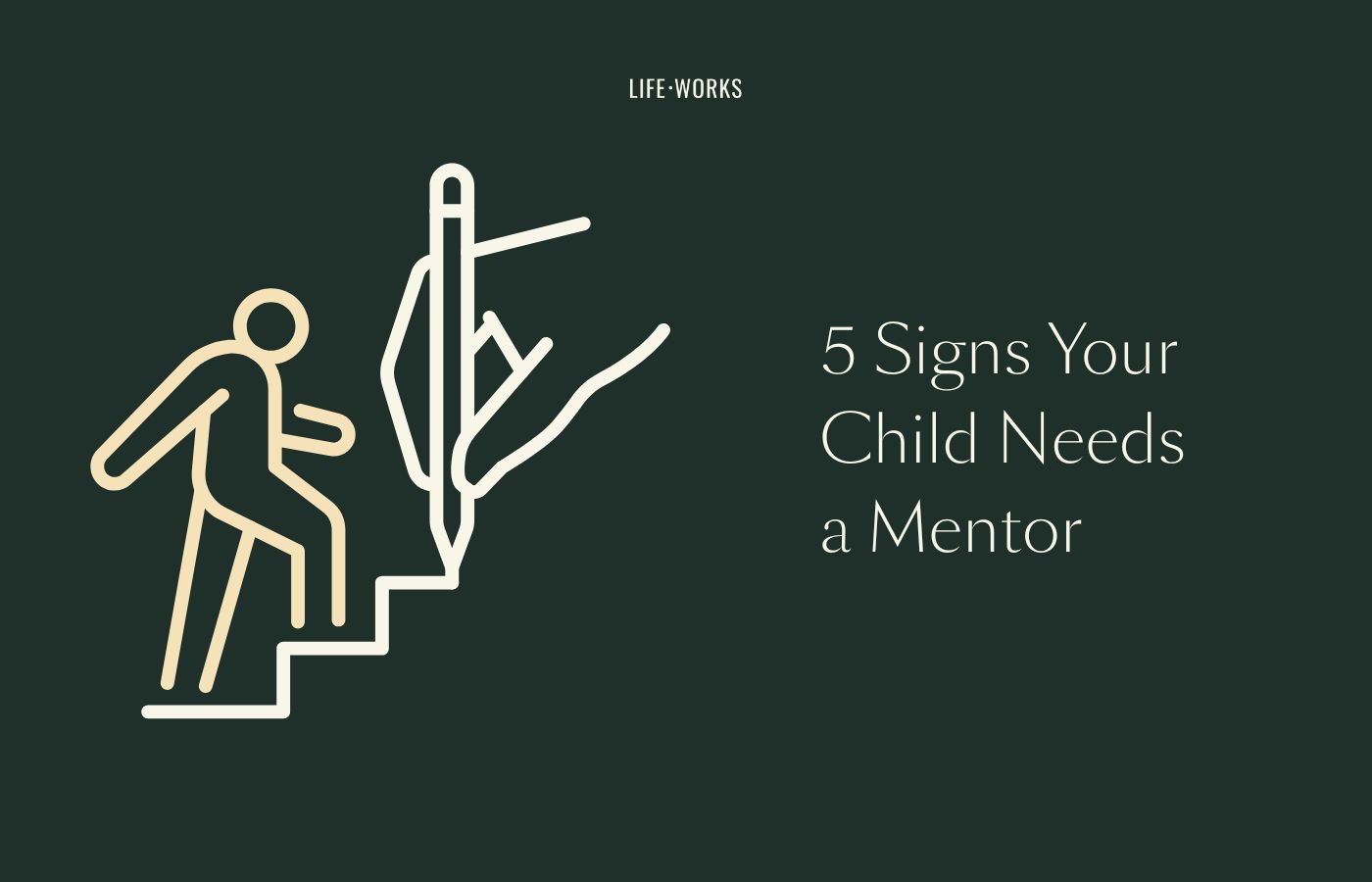
As a parent, you know your child better than anyone. When something feels off, when homework becomes a nightly battle, when your once-social child starts isolating, or when their confidence seems to crumble, you naturally want to help.
Sometimes, despite your best efforts, your child might benefit from an additional supportive adult in their life: a mentor.
This realization can feel overwhelming.
You might even wonder if seeking outside help means you're somehow failing as a parent.
You’re not.
The truth is quite the opposite.
Recognizing when your child needs a mentor shows incredible awareness and love.
Just as relationships matter in all aspects of development, the right mentoring relationship can provide your child with tools, perspectives, and support that complement what you're already doing at home.
When you notice your child consistently falling behind academically, even when they're putting in effort, a mentor can provide specialized academic support that goes beyond conventional tutoring. Unlike homework help, mentorship addresses the underlying emotional and motivational barriers that might be impacting their academic performance.
If homework time consistently turns into tears, arguments, or complete avoidance, your child might benefit from someone who can help them develop better study habits and a healthier attitude toward work itself. A mentor can help motivate your child to engage more fully in school and create personalized strategies that make academic tasks feel more manageable.
When a child who once loved school suddenly shows no interest in learning, this often signals deeper issues around confidence or connection. A mentor can help reignite that natural curiosity by connecting learning to your child's interests and strengths.
Social challenges can be particularly painful for both children and parents to navigate. If your child struggles to form friendships or frequently has conflicts with peers, a mentor can provide a safe space to practice social skills and build confidence in social situations. Having an additional trusted adult in one’s corner who is always ready to listen can make a huge difference.
If your child often comes home upset about conflicts with classmates or siblings, a mentor can also help them develop better communication skills and emotional regulation techniques. Effective communication is one of the most important life skills one can learn and yet it is rarely, if ever, taught in school.
When sadness or worry becomes a constant presence in your child's life, affecting their daily functioning, a mentor can provide additional emotional support. While this doesn't replace professional counseling when needed, mentorship can offer practical coping strategies and a consistent, caring relationship for a student to lean on. Reframing and reclaiming anxiety becomes much easier with consistent support and practice.
If your child has intense reactions to seemingly small frustrations – explosive anger, inconsolable crying, or complete shutdowns – they might benefit from learning emotional regulation techniques with someone outside the immediate family dynamic. Introducing students to some simple yet powerful mindfulness practices can empower them to see that they have more influence over how they feel inside than they might realize.
When you hear your child regularly saying things like "I'm stupid," "I can't do anything right," or "My teacher hates me," a mentor can skillfully challenge these thoughts, and begin teaching them how to speak and think in more positive ways that lead to better outcomes and a stronger sense of self.
If your child refuses to try new activities or gets overwhelmed in the face of managing long-term projects, they might benefit from someone who can help them build greater resilience and confidence. A mentor can work with your child to set small, achievable goals and celebrate progress along the way.
Children who constantly measure themselves against siblings, classmates, or social media often need help recognizing their unique strengths and value. A mentor can provide perspective and help your child focus on personal growth rather than comparison.
Some children achieve remarkable transformations when they receive this kind of individualized support – we've seen students go from an F to an A in three weeks when the right approach meets their specific needs.
Divorce, moving, starting a new school, or other significant transitions can leave children feeling unsettled. A mentor provides stability and consistent support during these challenging periods, offering perspective that is both caring and objective.
Sometimes children benefit from advice and support from an adult who isn't a parent. A mentor can offer a fresh perspective while still supporting your family's values and goals.
If your child doesn't have many positive adult figures in their life beyond immediate family, a mentor can fill this important role. This is especially valuable for helping children envision their future possibilities and develop important life skills.
If you're noticing multiple signs from this list, or if you're simply feeling overwhelmed by trying to meet your child's needs on your own, consider reaching out for parent support. Sometimes the first step involves simply getting clarity on what kind of help would be most beneficial for your specific situation.
The goal isn't to “fix” your child, it's to provide them with additional tools, perspectives, and relationships that help them thrive. When children receive this kind of comprehensive support, they often make leaps, not just steps in their personal development.
At LifeWorks, we don't just prepare students for tests, we prepare them for life. If you're looking for support in helping your child develop academic confidence and life skills, contact us to learn more about our comprehensive approach to student success.